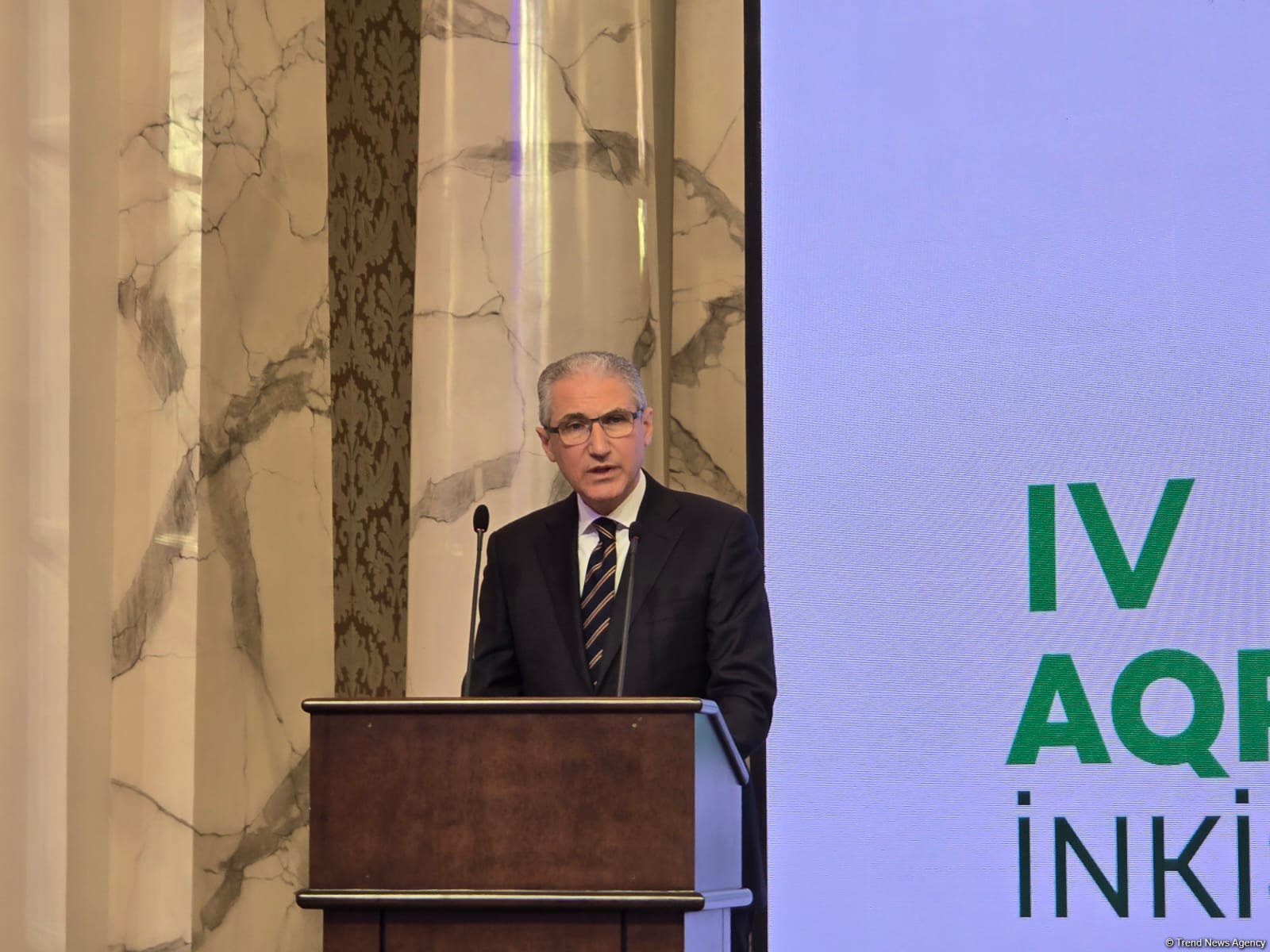BAKU, Azerbaijan, May 2. The development of agroparks should be supported by the application of innovative and biological methods, Representative of the President of the Republic of Azerbaijan on Climate Issues, Mukhtar Babayev said at the 4th Agribusiness Development Forum, Trend reports.
"According to the World Meteorological Organization (WMO) and the Food and Agriculture Organization (FAO), disasters over the past 30 years have caused approximately $3.8 trillion in losses to agriculture, which averages $123 billion per year—equivalent to about five percent of the annual global agricultural GDP," he mentioned.
The minister emphasized that in the context of climate change, sustainable development of agriculture relies heavily on research and the application of new technologies.
"Cost-effective farming and innovative irrigation methods allow farmers to significantly save both water and time. While climate change negatively impacts agriculture, agricultural activities are also among the contributing factors to climate change. Currently, about 20 percent of global greenhouse gas emissions are attributed to this sector.
In Azerbaijan, the key steps to adapt agriculture to climate change include the efficient management of water and soil resources, modernization of irrigation systems, reduction of water losses, and protection of soil fertility. Additionally, cultivating drought-, salinity-, and heat-resistant crop varieties and applying modern agrotechnical practices are of critical importance for improving productivity.
At the same time, the development of agro-parks must support not only ecologically and economically sustainable production but also the adoption of innovative and biological methods in the use of water, fertilizers, and pesticides.
Joint action by the public and private sectors is essential in this area. Within this cooperation, new technologies and digital solutions must be implemented, and productivity must be increased.
Combating climate change requires broad, coordinated, and long-term measures. To mitigate these effects in agriculture, it is crucial to raise awareness among farmers and help them adapt their production practices to the changing climate.
Last year, international attention was focused on our country, particularly on the work done in the field of environmental protection and combating climate change. The assignment of hosting rights for the 29th session of the Conference of the Parties (COP29) to the UN Framework Convention on Climate Change, recognized as the most prominent global climate forum, is a clear sign of trust and a testament to successful cooperation with international organizations.
By hosting COP29, our country has launched global initiatives across various fields, including energy, urban planning, finance, agriculture, and human capital development. These initiatives embrace inclusive approaches to tackling climate change.
The 'Baku Climate Harmony Initiative for Farmers,' presented through a joint initiative of the COP29 Presidency, the Ministry of Agriculture, and FAO, was created to empower women and young farmers, build climate-resilient rural communities, and strengthen knowledge exchange. This initiative brings together more than 90 global and regional programs to support sustainable development in rural areas and attract investment into the sector," Babayev added.
He praised the leadership of the Ministry of Agriculture in preparing and implementing this initiative.
"The ministry is achieving significant success in the development of agriculture and climate adaptation, both domestically and internationally.
Within the framework of the conference, a New Collective Quantified Goal (NCQG) on climate finance was agreed upon. The Baku Climate Finance Target, presented during COP29, triples the previous annual commitment of $100 billion to a new goal of $300 billion annually, to reach $1.3 trillion by 2035.
Ensuring that this financing is accessible to developing countries, especially least developed countries (LDCs) and small island developing states (SIDS), has been identified as a top priority.
As a result of COP29, the Loss and Damage Fund began operating as a new financial mechanism. This fund creates special support opportunities for vulnerable regions and farming communities most affected by climate change.
"Additionally, years-long negotiations on carbon markets were concluded during COP29, and rules regulating both market and non-market cooperation under the sixth article of the Paris Agreement were adopted. This will enable the mobilization of up to $1 trillion annually through carbon markets and could reduce the cost of implementing countries’ climate plans by up to $250 billion. These mechanisms can also be used in agriculture to reduce emissions and protect land and water resources.
Currently, work is underway to establish the necessary legal and institutional framework to expand our country’s participation in carbon markets. This will create new opportunities for the implementation of low-carbon technologies in agriculture and the attraction of green investments," Babayev noted.
Stay up-to-date with more news on Trend News Agency's WhatsApp channel







